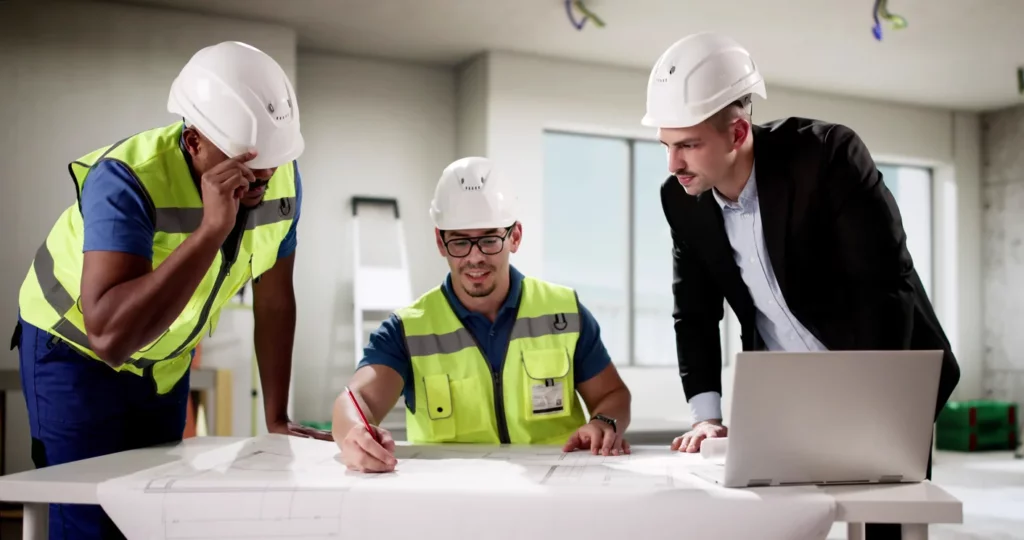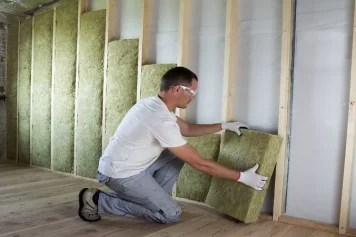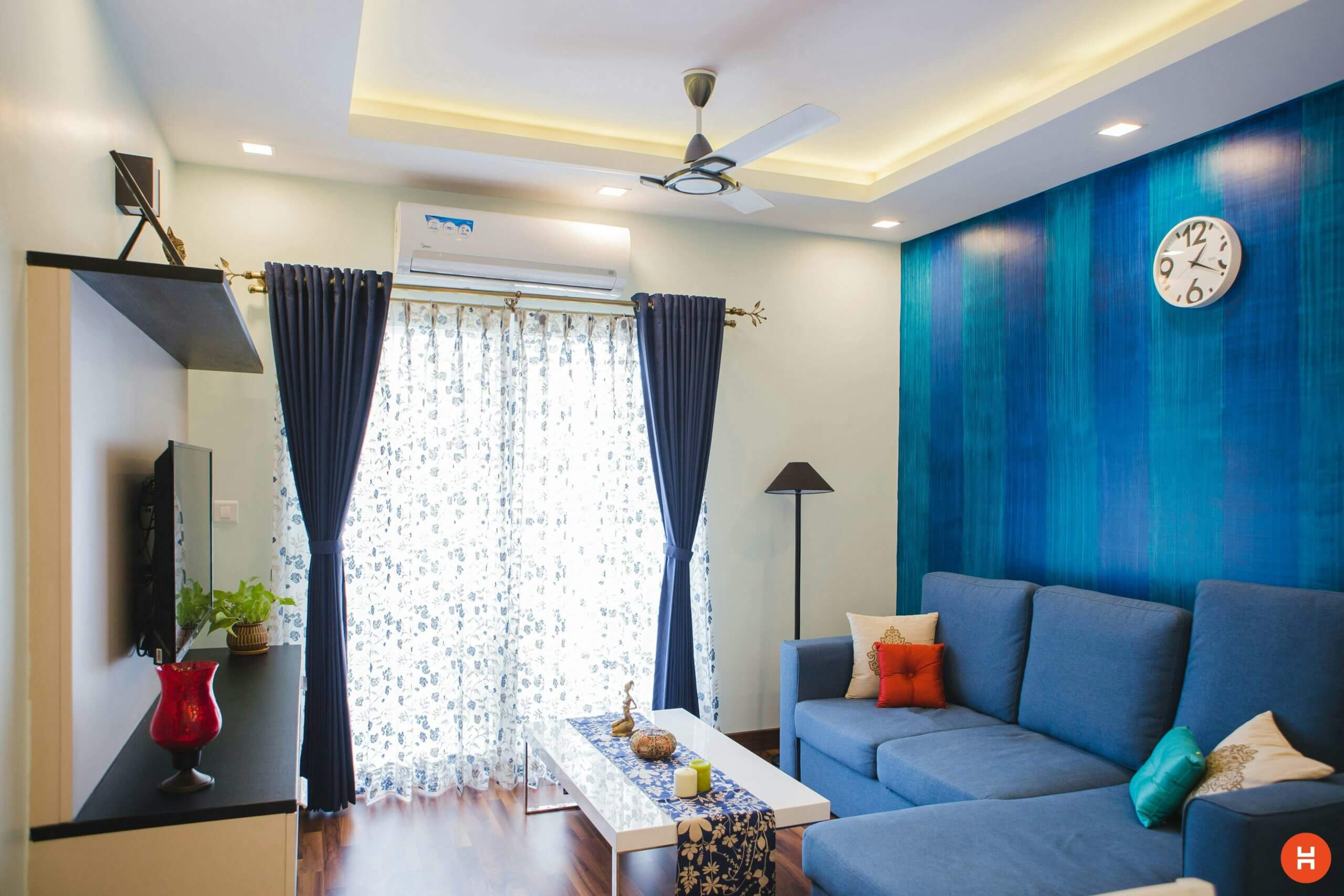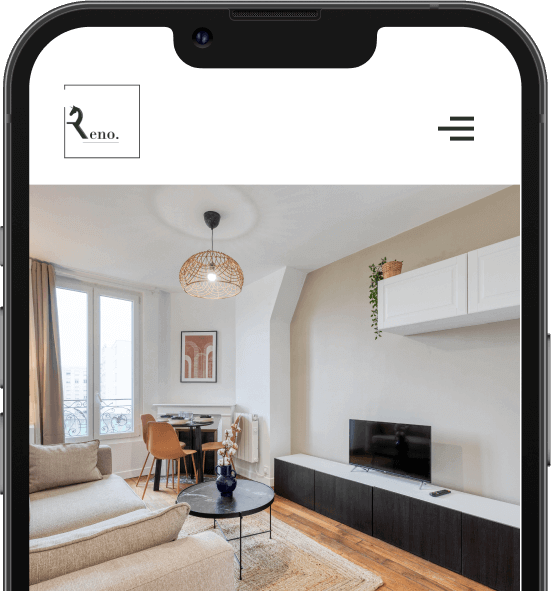Tax-deductible renovation work can significantly reduce your tax bill. The tax deduction represents an average saving of €2,500 per household.
Every year, thousands of homeowners miss out on these tax opportunities. However, the tax credit for renovations remains accessible to everyone. Energy renovations offer the best prospects for tax deductions. Improvement work generates lasting savings on your taxes.
Your primary residence benefits from specific tax advantages for certain renovations. Rental income can also be maximized through tax-deductible renovations. MaPrimeRénov’ often combines with the energy transition tax credit. This combination maximizes your tax relief on renovations.
Energy renovation work and tax credits require a methodical approach. Energy performance determines the eligibility of your expenses. Work in co-ownerships follows specific deduction rules.
Expertise becomes crucial to navigate this tax complexity. Reno, a Parisian renovation company, has been supporting your projects for fifteen years. Our knowledge of tax systems optimizes your renovation investments.
Thermal renovation work accounts for 70% of the tax deductions granted each year. The property tax deficit can reach €10,700 annually for certain projects. This tax strategy transforms your renovation project into a real investment.
Now find out how to turn your renovations into real tax benefits. We’ll detail each system, each condition, and each necessary step.
What renovation work is tax deductible?
The list of deductible work changes each year based on government priorities. However, certain categories remain a priority for benefiting from the tax credit.
Energy improvement work eligible for tax deductions
Energy renovation work currently accounts for the majority of deductible expenses. Thermal insulation of the attic can reduce your energy bills by up to 30%. In addition, this improvement generates a tax deduction of up to €8,000.
External wall insulation also offers substantial tax benefits. Furthermore, floor insulation effectively complements your energy renovation strategy. This work significantly improves the energy performance of your home.
Replacing heating systems is another major tax priority. Air-to-water heat pumps benefit from the most advantageous energy transition tax credit. Gas condensing boilers also offer attractive tax exemption opportunities for renovations.
Equipment that uses renewable energy increases your tax deduction opportunities. Photovoltaic solar panels, in particular, generate lasting savings on your construction taxes. Individual solar water heaters also qualify for the construction tax credit.
Apartment renovation and deductions: what you need to know
The work carried out on your apartment renovation follows specific tax deduction rules. Upgrading electrical standards is an eligible expense under certain conditions. However, this work must improve the safety and performance of the home.
Bathroom renovations for accessibility are eligible for a tax credit for home adaptations. These modifications are particularly beneficial for the elderly and disabled. Thus, specialized equipment benefits from an increased tax credit rate.
Home adaptation work includes the installation of stairlifts and safety showers. These improvements therefore allow for a tax deduction of up to 25% of the costs incurred.
Reno, a comany specializing in renovations, regularly optimizes Parisian projects to maximize tax benefits. Our technical expertise ensures your improvement projects are eligible for various existing tax incentives.

Tax credits and tax assistance for your renovation work
Tax schemes complement each other to provide maximum coverage for your expenses. However, each type of assistance meets specific criteria that must be understood.
MaPrimeRénov’: the main aid for your renovation expenses
MaPrimeRénov’ has been gradually replacing the former energy transition tax credit since 2020. This aid covers up to 90% of eligible work depending on your income. Indeed, low-income households receive the highest amounts.
Home renovation work can thus be financed up to a maximum of €20,000. However, this amount is spread over five consecutive years to prevent abuse. In addition, MaPrimeRénov’ and tax credits are combined for certain specific expenses.
Insulating unused attics generates aid of up to €25 per square meter. At the same time, replacing an oil-fired boiler can be subsidized up to €4,000. These amounts vary depending on the geographic area and household income.
The scheme also covers work deductible from rental income for landlords. This measure encourages the renovation of France’s private rental housing stock. This way, rental income and work can be seamlessly integrated into your tax strategy.
Energy transition tax credit (CITE): eligible work
The CITE now only applies to certain specific equipment not covered by MaPrimeRénov’. Electric vehicle charging stations remain eligible for this scheme. Also, certain heating equipment still benefits from this tax reduction.
The tax credit rate varies between 15% and 50% depending on the type of equipment installed. For example, geothermal heat pumps retain a very attractive rate of 30%. However, this equipment must meet strict technical energy performance criteria.
Spending limits for a single person are €8,000. Couples, on the other hand, can claim up to €16,000 in tax-deductible expenses. Each dependent child increases this limit by an additional €400.
The installation of electricity production equipment using solar energy remains partially eligible. However, these installations must exclusively supply your primary residence to benefit from this tax deduction.
Reduced rate VAT on renovation work VAT
VAT at 5.5% is automatically applied to energy efficiency improvement work. This reduction represents an immediate saving of 14.5% on your bills. Therefore, it effectively complements other tax exemption schemes for renovations.
The work covered includes the insulation, heating, and ventilation of your home. The installation of renewable energy production equipment also benefits from this preferential rate. This measure encourages the energy transition of French homes.
The intermediate rate of 10% applies to home improvement and conversion work. These interventions include roof repairs or the expansion of existing rooms. However, these works do not generate an additional tax credit for renovations.
Differentiating between rates requires the expertise of an experienced renovation company. Reno has a thorough understanding of these tax intricacies to optimize your Parisian projects. Our regulatory knowledge guarantees the application of the most advantageous VAT rate.
Conditions and eligibility criteria for deducting your work from taxes
Tax eligibility depends on specific technical and administrative criteria. Furthermore, these conditions change regularly in line with government energy guidelines.
Technical criteria: energy performance and standards
RGE (Recognized Environmental Guarantor) certification is a prerequisite for access to most tax incentives. This qualification guarantees the technical expertise of your renovation company. In fact, only certified professionals can provide you with tax credits.
Insulation materials must meet a minimum thermal resistance to be eligible. For example, attic insulation requires an R-value greater than 7 m².K/W. Similarly, wall insulation requires a minimum resistance of 3.7 m².K/W.
Heating equipment must display energy performance certified by approved organizations. Heat pumps require a coefficient of performance greater than 3.4 in heating mode. These technical requirements guarantee the true efficiency of your tax-deductible work.
Compliance with current standards is also a condition for the allocation of tax benefits. Thermal regulations RT 2012 are required for all installed equipment. RE 2020 will soon strengthen these energy performance requirements.

Income conditions and tax deduction ceilings
Income scales determine the amount of aid granted for your eligible work. MaPrimeRénov’ adjusts its amounts according to four different income categories. Thus, very low-income households benefit from the most generous subsidies.
The reference tax income for year N-1 serves as the basis for calculating your eligibility. These thresholds are revised annually based on inflation and budgetary objectives. However, slightly exceeding these ceilings does not automatically exclude you from the scheme.
Annual ceilings limit the accumulation of various tax incentives over the same period. The property deficit cannot exceed €10,700 per year for work other than improvements. However, energy improvement work is exempt from this property deficit limitation.
Accumulation rules allow the combination of multiple schemes under certain conditions. MaPrimeRénov’ can be combined with energy savings certificates and the zero-interest eco-loan. This strategy significantly multiplies your savings on construction taxes.
Home renovation work: tax specifics
Your primary residence benefits from greater tax advantages than second homes. Tax-deductible work on your primary residence is eligible for all government programs. However, second homes remain excluded from most government assistance.
Rental properties follow a special tax regime for work deductible from rental income. These expenses are charged directly to your rental income to reduce your tax base. Therefore, the resulting property deficit can even be deducted from your other income.
Property tax exemptions can supplement these benefits for certain energy-saving projects. This exemption applies for three consecutive years following the completion of the work. However, your municipality must have approved this tax measure.
Reno specifically supports Parisian homeowners in optimizing their renovation projects. Our legal and technical expertise maximizes your tax savings while complying with regulations. This comprehensive approach effectively transforms your renovations into a profitable investment.
Conditions and eligibility criteria for deducting your work from taxes
Energy renovation work requires specific conditions. Here’s how to meet these criteria to get your tax deductions.
Technical criteria: energy performance and standards
Tax-deductible work meets strict standards. Energy performance is the primary criterion for qualifying for the tax credit. The equipment installed must meet minimum performance thresholds. For example, an air-to-water heat pump must have a coefficient of performance greater than 3.4.
Les professionnels RGE (Reconnu Garant de l’Environnement) réalisent obligatoirement ces travaux éligibles. Cette certification garantit la qualité des installations. De plus, elle conditionne l’accès aux aides publiques. Les matériaux utilisés possèdent également des labels spécifiques. Ces certifications attestent de leurs performances thermiques et acoustiques.
La résistance thermique des isolants respecte des valeurs minimales. Pour les combles perdus, elle doit atteindre 7 m²K/W minimum. Les murs extérieurs nécessitent une résistance d’au moins 3,7 m²K/W. Ces seuils évoluent régulièrement selon la réglementation en vigueur.
Conditions de revenus et plafonds de déduction fiscale
Les revenus fonciers déterminent l’éligibilité aux différentes aides. MaPrimeRénov’ s’adapte aux ressources du foyer fiscal. Quatre catégories de revenus établissent les montants accordés. Les ménages aux revenus très modestes bénéficient des aides maximales.
Le crédit d’impôt pour travaux s’applique selon des plafonds annuels. Un célibataire peut déduire jusqu’à 8 000 euros sur cinq ans. Un couple marié atteint un plafond de 16 000 euros. Chaque personne à charge majore cette limite de 400 euros supplémentaires.
Les travaux de rénovation de maison permettent souvent de cumuler plusieurs dispositifs. Néanmoins, les montants totaux ne dépassent pas certains seuils. La réduction d’impôt Fondation du patrimoine complète parfois ces aides. Elle concerne spécifiquement les bâtiments remarquables situés dans des secteurs sauvegardés.
Travaux de rénovation de maison : spécificités fiscales
La résidence principale bénéficie d’avantages fiscaux plus importants. Les travaux déductibles des revenus s’appliquent différemment selon le statut du bien. Un propriétaire occupant accède à MaPrimeRénov’ et au crédit d’impôt transition énergétique.
Les biens locatifs relèvent du régime des revenus fonciers. Les propriétaires bailleurs déduisent leurs travaux d’amélioration directement. Cette déduction s’effectue sur les loyers perçus. En revanche, l’exonération de taxe foncière reste possible pour certains travaux énergétiques.
Reno accompagne les propriétaires dans l’optimisation de leurs défiscalisation travaux. Cette entreprise spécialisée en rénovation analyse chaque projet. Elle détermine ainsi les dispositifs les plus avantageux financièrement.
Démarches administratives pour bénéficier des déductions fiscales
L’obtention des déductions fiscales nécessite des démarches précises. Voici les étapes indispensables pour sécuriser vos avantages.
Justificatifs et documents nécessaires pour vos dépenses éligibles
Les factures détaillées constituent les pièces maîtresses du dossier. Elles mentionnent précisément les matériaux utilisés et leur performance. Le professionnel RGE émet une attestation confirmant sa qualification. Cette attestation accompagne obligatoirement la facture pour les travaux déductibles.
Certificates of conformity validate the quality of installed equipment. For example, a condensing boiler has its CE marking. Energy labels also appear on invoices. These documents demonstrate compliance with required energy performance thresholds.
Supporting documents must be retained for a minimum of ten years. This period allows for responses to potential tax audits. The administration may request these documents to verify the eligibility of the work carried out.
Tax return: how to declare your renovation work
The declaration of work is made the year following its completion. Work taxes are listed on specific forms. Form 2042 RICI lists tax credits and reductions. Each type of work corresponds to a specific box.
Home adaptation work uses boxes 7WI to 7WN. The tax credit for home adaptation applies to the elderly or disabled. Heating and insulation equipment fills other dedicated boxes.
The tax calendar imposes strict deadlines. Paper returns must be submitted by mid-May. Online returns benefit from a few extra weeks. These deadlines vary depending on the department of residence.
Tax-deductible renovation work: the essential points
Renovation work offers numerous tax benefits to homeowners. These measures significantly reduce the cost of energy improvements. However, their complexity requires appropriate professional support.
The success of your project depends on meeting the eligibility requirements. Technical criteria, income limits, and administrative procedures determine whether you will receive aid. A mistake can jeopardize all of the expected benefits.
Reno puts its expertise at the service of your energy renovation projects . This renovation specialist company optimizes your tax deductions. It thus secures your investments while maximizing your profitability.
Contact our team today for a free consultation. Together, we will analyze your project and determine the best tax strategies.







